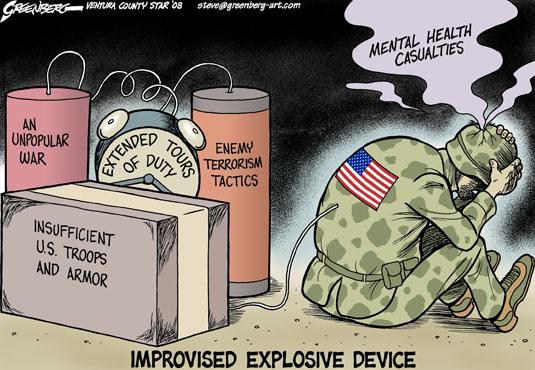
Here is my final blog posting from the NAMI convention.
Musings about NAMI convention by Greg Arms
This year I attended the NAMI conference in Texas. Opening day I saw an array of people from various ethnic, religious, cultural, and regional areas across the world. In addition, I met psychologists, psychiatrists, counselors, social workers, students, and professors. Any profession within the mental health field was represented at NAMI.
One profession I was shocked to see was a grade school teacher I met. It was bittersweet because on one hand she was there for her students on the other hand she was there because of her students. She discussed the rise in mental health diagnoses that she has seen with her kids over the years. I was saddened yet impressed with her willingness to learn.
On opening day I met quite a few individuals with mental health disorders. Some were there to learn more about his or her disorder. Others were there to explore new treatment options. All in all ,everyone was there looking to gain more insight into mental health and to seek answers.
As a disabled veteran I was drawn to the presentations regarding veterans and mental health disabilities. The first one I attended was called Suicide Prevention and Intervention. The facilitator was Ken Norton, M.S.W.
This conference was geared towards the families of returning soldiers. The conference was divided into two parts. First, Suicide Prevention and Warning Signs: What families need to Know. The second part, Psychological Injury and Prevention for Military, Veterans, and families.
The first part focused on the warning signs displayed in individuals who are contemplating suicide or who are getting ready to commit suicide. Some of the warning signs were: changes in behaviors, anger, withdrawal from family, depression, comments concerning death, such as ‘the world would be better off without me’ or ‘what is the point of going on?’
Mr. Norton stressed the importance of not ignoring the warning signs of another. As he put it: each threat needs to be taken seriously as if the individual were going to attempt suicide. He also discussed how to deal with a suicidal individual. Ways such as: talking, calling a mental health hotline and/or calling 911.
The second part of the presentation focused on ways to prevent or reduce the impact of mental illness upon both the soldier and family members. Mr. Norton discussed how family members can be just as impacted by mental illness as the returning veteran. Reunification can be taxing on family members, which can lead to anxiety disorders, depression, and stress. He focused on the family unit as a whole — as the sum of its parts.
One session that stuck out was Veterans Institute: Understanding Veterans Administration Disability Claim Process. This was facilitated by Paul Sullivan who is a Persian Gulf Veteran and also is a board member for Common Sense. His focus was on Post Traumatic Stress Disorder (PTSD) in soldiers returning from overseas. I, myself, had to go through the hoops and red tape on my way to securing disability. I was a Gulf War veteran diagnosed with Bipolar Disorder while in service.
The process of securing disability for PTSD is so back logged that the veterans administration has a department that only handles PTSD cases. The process itself can take up to two or more years depending upon which state one lives in. Mr. Sullivan discussed ways to better navigate the system and get your claim handled more quickly. He pointed out how little most service members know about the process and resources available to veterans, i.e. lawyers. I was never informed of anything in my process. I simply had to learn as I went along. Once I received my disability, I simply received a letter stating the amount and the judge’s findings. It was up to me to find out what resources were available and how to get them.
Mr. Sullivan discussed ways to advocate, the importance of keeping copies of all correspondence, and of copying your medical records. All of that is crucial in wining your claim. The information presented would have made my experience easier and quicker. I had to wait 23 months for my approval. This presentation was the most informative to me as a veteran.
In the end, the NAMI convention was an enjoyable and informative experience. I met some wonderful individuals who are sharing my own battles. I learned different coping mechanisms and new treatment options both counseling style and drug intervention style.
I walked away with a renewed sense of hope and excitement.




Greg, thanks for your post. Like you, I wish someone could have helped me navigate sooner. Thank you to all the individuals who are involved with NAMI, who try and who keep trying to find ways to improve that help.
I wish there were more Ken Nortons and Paul Sullivans helping returning veterans and their families reunite and begin a ‘new normal’ together. Best wishes coming your way, Greg.
Terri